- Category
- Life in Ukraine
How Ukrainians are Fighting to Keep Their Independence Today
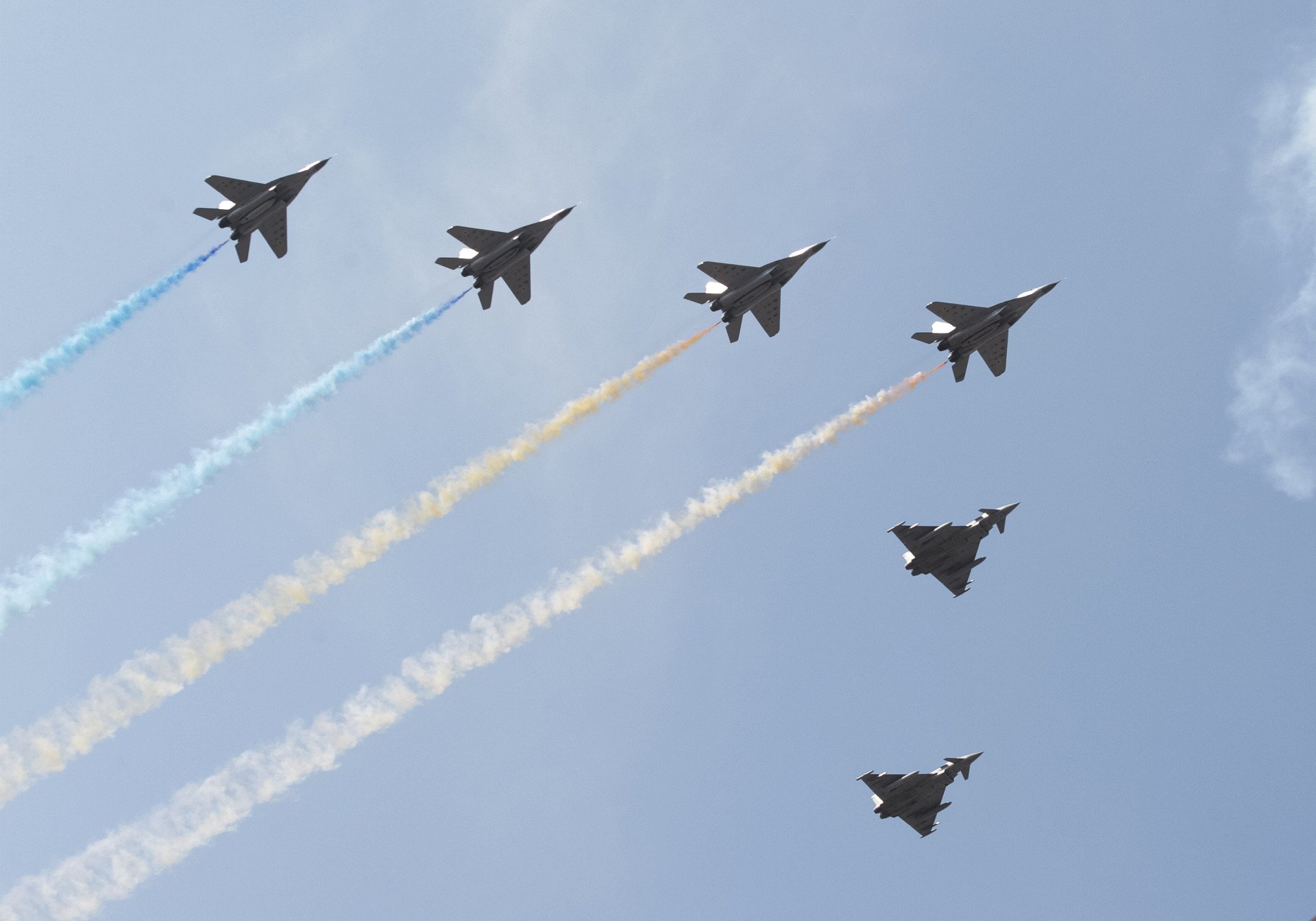
What does independence mean for Ukraine? It wasn’t just granted; it was earned by the people’s will and enshrined in the Constitution. Now, facing an existential threat from Russia, the fight to protect this hard-won independence is more crucial than ever.
I remember nearly every Independence Day of Ukraine over the past decade. For the 30th anniversary in 2021, Ukraine showcased its military might with a grand parade in Kyiv, while in Odesa, the Ukrainian Navy held a display in the Black Sea port. On that day, joy turned to awe as the An-225 Mriya (“Dream”), the world’s largest transport aircraft, soared overhead.
There are no grand parades now, no Mriya—Russia has destroyed it. Now, every day is a fight for Independence.
“Can we say that Russia has destroyed our dream?” Ukrainian President Volodymyr Zelenskyy asked in his address to the Australian Parliament.
“No. It burned the plane, it burned the iron. It destroyed matter, not soul. The shell, not the essence. Not freedom. Not dignity. Not independence.”
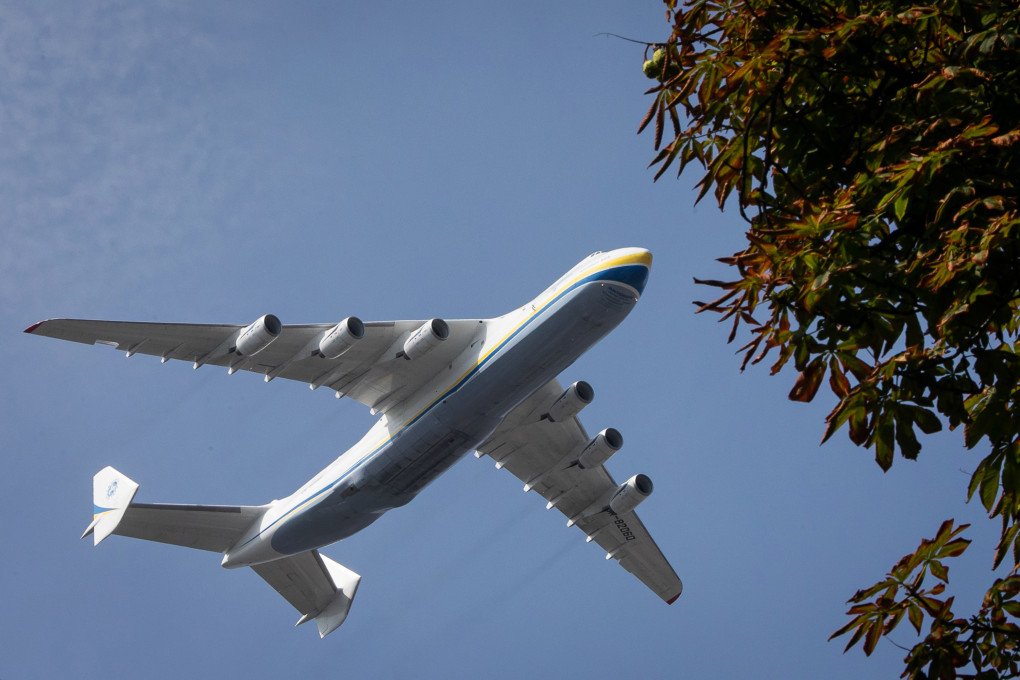
Coming to terms with the long-sought independence
After a grueling 24-hour session on June 28, 1996, Ukraine’s Parliament adopted the Constitution, declaring the nation sovereign, democratic, and lawful. This marked a defining moment in Ukraine’s cultural and political identity, though it also brought uncertainty.
For some, independence was a new, unfamiliar concept; for others, it is a natural fact that needs no justification. And those born after the Soviet era cannot even envision Ukraine as anything other than a sovereign, democratic state.
“This war is for independence,” said renowned Ukrainian writer and philosopher Oksana Zabuzhko in an interview with Radio Free Europe/Radio Liberty.
“We’ve been calling it what it is since February 24, 2022; back in 2014, it was still seen as a metaphor. But then it became undeniable. Today, the war for independence is no longer just a fact or an act; it’s an ongoing process.”
Ukraine declared independence from the Soviet Union on August 24, 1991. Now, 33 years later, Ukrainians are still relentlessly fighting for freedom in Ukraine.
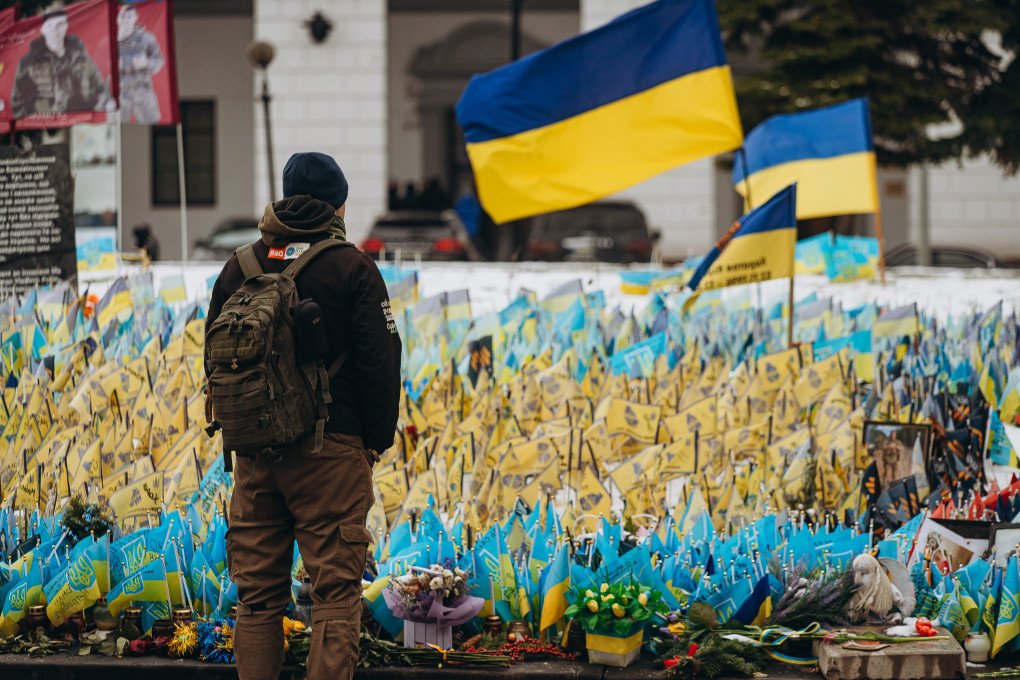
Here are the 5 ways Ukrainians fight for independence
Defense and protection
Ukraine’s independence is rooted in the courage of its people—those defending their land, homes, and fellow citizens.
“Our military holds the city, but it’s taken a tremendous effort,” said the Ukrainian photographers Vlada and Kostyantyn Liberov under their recent photos depicting Ukrainian soldiers defending the town of Toretsk in the Donetsk region. “In Ukraine, the word ‘hell’ lost its sacred meaning: it isn’t mythical; it’s what we’ve seen firsthand.”
Over the past decade, Ukraine’s military has transformed, sparking reforms with Western help. These changes improved training, leadership, and defense management, enabling Ukraine’s military to hold its ground against a larger Russian force.
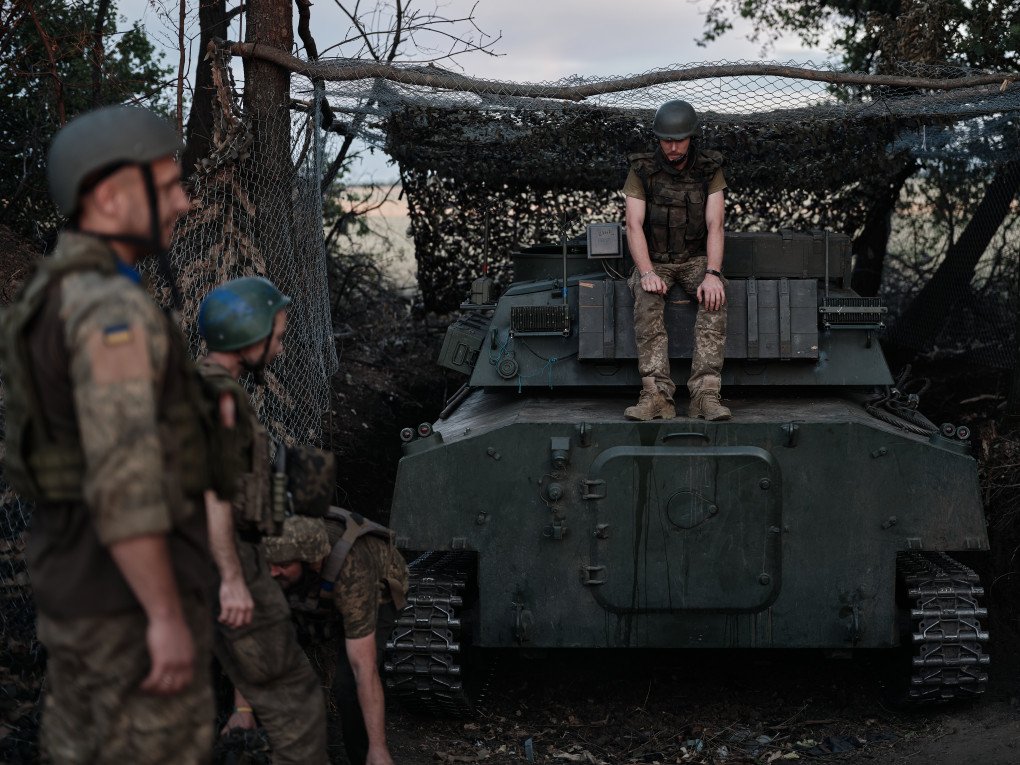
When Russia invaded in 2014, ordinary civilians answered the call and became soldiers. In 2022, nearly 100,000 enlisted within weeks. Police fought alongside soldiers in brutal battles. The Azov Brigade became legendary, defending Mariupol in both 2014 and 2022. When Russian forces demanded the surrender of a Crimean base in 2014, an elite Ukrainian battalion defiantly replied, “Get lost.” That same spirit resurfaced in 2022 when 13 soldiers on Zmiinyi Island told a Russian warship much the same.
Now, Ukrainian forces are systematically dismantling Russian anti-aircraft defenses, crippling their ability to detect Storm Shadow missiles and drone flotillas. Lacking shells, Ukraine’s Drone Army effectively replaced artillery, inflicting heavy losses on Russian forces. Practically destroying the Russian Fleet, Ukrainians secured control of the Black Sea, vital for Ukraine’s economy. This success showcased strategic prowess and advanced drone and missile capabilities. Meanwhile, Ukrainian Medical Battalions, like the Hospitallers, continue working in war zones, upholding their motto, “for the sake of every life,” by sustaining the health and morale of defenders.
Beyond combat, the Ukrainian army’s true strength lies in its collective achievement—a source of national pride. Defying predictions, Russian equipment did appear on Kyiv’s Khreshchatyk Street—damaged, burnt, and broken as war trophies.
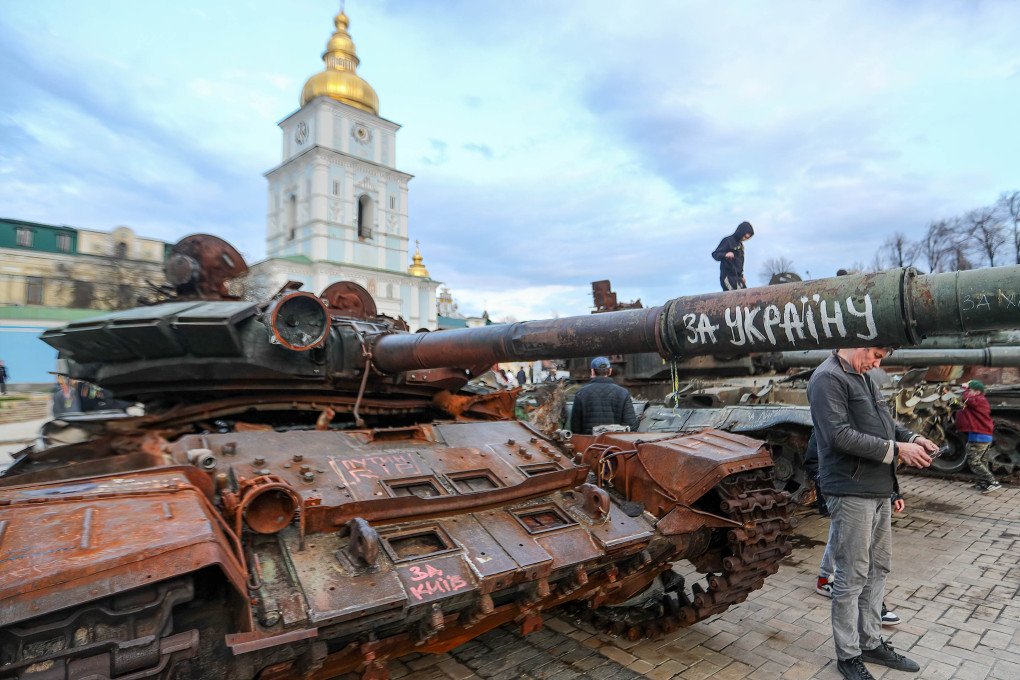
Unity and volunteers
“When Ukrainians volunteer, they do not only attempt to alleviate immediate issues—they also promote and/or create a new civic and political culture,” Dr Olga Boichak, sociologist and lecturer in digital cultures in the University of Sydney’s Discipline of Media and Communications, pointed out in her study.
Faced with Russian devastation, the nation united. Volunteers in Ukraine quickly formed a vast support network, supplying the military with essentials and aiding displaced persons. They pushed for rights and protections for veterans and people with disabilities, including amputees, ensuring those who sacrificed were not forgotten.
Complete strangers joined forces to evacuate people and animals from war zones, especially after Russia destroyed the Kakhovka Dam. In cities like Kharkiv and Mykolaiv, volunteers risked their lives to save pets, many of which were later adopted. Thousands bought zoo tickets to protect animals, while zoo workers bravely continued their duties under Russian fire.
Donations surged, with individuals, businesses, and celebrities like comedian Vasyl Baidak, known for his viral skits, raising funds and awareness. Major Ukrainian companies from IT to banking made substantial contributions.
Many Ukrainians requalified themselves to meet new needs. Rehabilitation workers, prosthetists, and mental health professionals emerged to support those affected by the war. PTSD therapies became a priority. Women took on roles traditionally dominated by men, and entrepreneurs and builders not only sustained the economy but also strengthened society in its darkest hour.
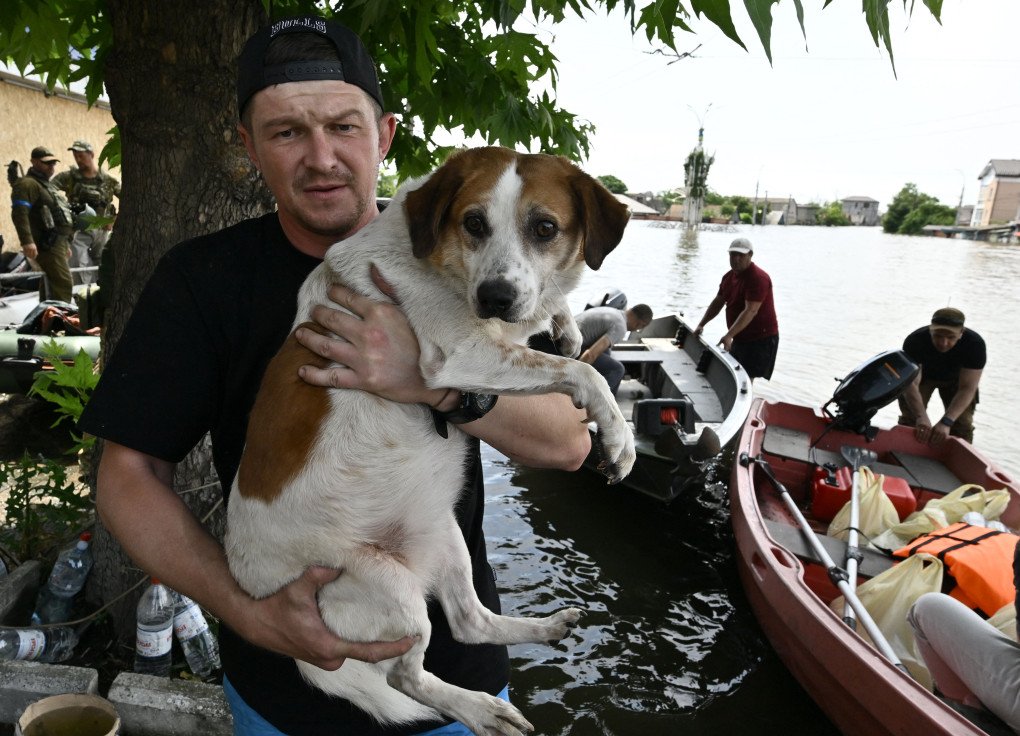
Cultural identity
As the Russian army continues to destroy Ukrainian cultural heritage, Ukraine has united to preserve and promote its language, literature, and identity.
This effort reclaims Ukraine’s history from the shadows of colonization, identity erasure, and oppressive language policies. By uplifting Ukrainian creators and distancing from Russian and Soviet influences, Ukrainians are forging a stronger sense of self and national pride. Ukrainian authors, filmmakers, and artists are leading these conversations, exposing the lingering impact of imperial domination.
For 30 years, the issue of language was often ignored, even by top officials, as Zabuzhko noted.
“We must realize that Ukrainians were born into Russian-speaking families because something very bad was done to their ancestors—not too long ago—whether grandparents, great-grandparents, or even parents,” she said.
This transgenerational trauma has been passed down, and for many Ukrainians, confronting it has been a lifelong journey. Several waves of returning to the Ukrainian language—after independence in 1991, the Orange Revolution in 2004, in 2014, and now with renewed urgency since Russia’s full-scale invasion—mark a necessary yet rough transition for healing.
Recent films and documentaries, like Oscar-winning “20 Days in Mariupol,” capture the realities of life in Ukraine and uplift Ukrainian voices on the international stage, reclaiming the nation’s cultural narrative.
Ukraine is boldly celebrating its artistic heritage, honoring painters long overshadowed by Soviet and Russian narratives. Mykhailo Boichuk and Kazymyr Malevych—often misattributed as Russian—are now recognized as integral to Ukraine’s cultural identity.
Ukraine’s message is clear: its culture, like its people, is vibrant, resilient, and distinctly Ukrainian.
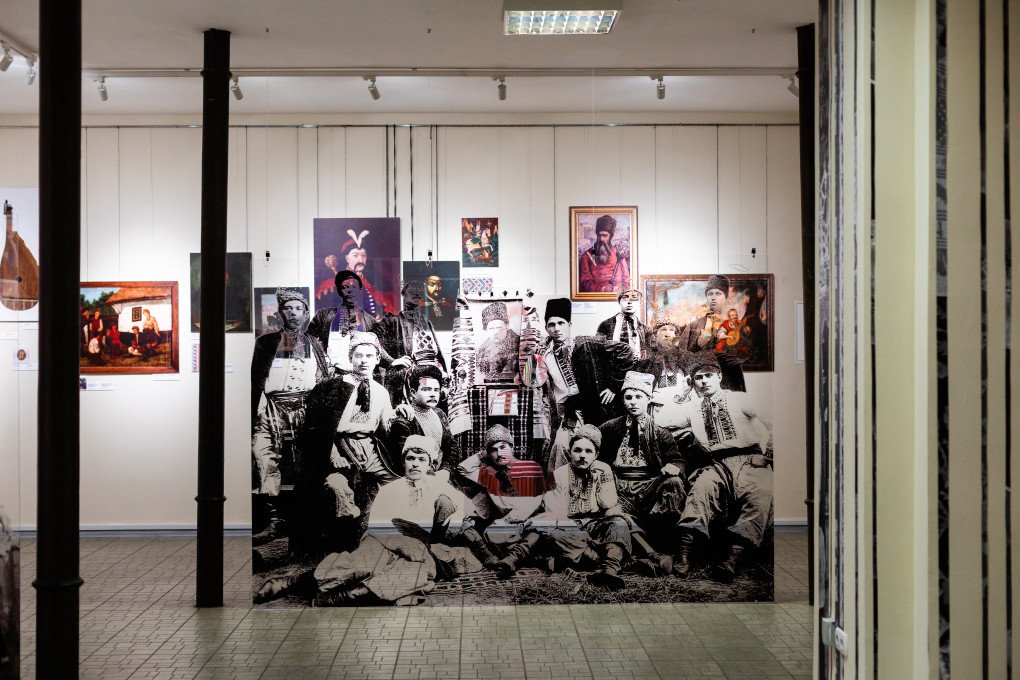
Democratic activism and civil resistance
Ukraine’s democratic path officially began with the 1991 referendum, where 90.3% voted for independence, followed by its first presidential elections and steady democratization. In 33 years of independence, Ukraine has held 23 national elections and reformed laws to combat domestic and gender-based violence. Ukraine’s fight for civil rights has led to the organization of LGBT events and a broader push for equality, vital to Ukraine’s cultural identity and future. The civil society in Ukraine was setting itself on the right path.
The 1990 Revolution on Granite, a student-led protest, set the stage for the 2004 Orange Revolution, which shifted power from the presidency to the parliament, and the 2014 Revolution of Dignity, which ousted the Russian puppet president Viktor Yanukovych, reinforcing Ukraine’s commitment to democracy. The Heavenly Hundred—civilian protesters killed during the Revolution—are commemorated to this day.
Ukrainians have consistently stood against corruption and injustice, and protected historical landmarks. Activists like Roman Ratushnyi, who fought for Kyiv’s heritage and later died defending Ukraine, inspire today’s youth. The National Anti-Corruption Bureau marked a big step in the fight against corruption.
In 2022, Ukrainian resistance was strong as Mariupol residents gathered in crowds to oppose the Russian invasion, and Enerhodar civilians protested unarmed against Russian tanks. Residents from liberated Ukrainian territories revealed hidden Ukrainian flags they had buried to save from invaders.
“Wet but alive,” said a woman in the video, hugging and carrying the national symbol back into the house.
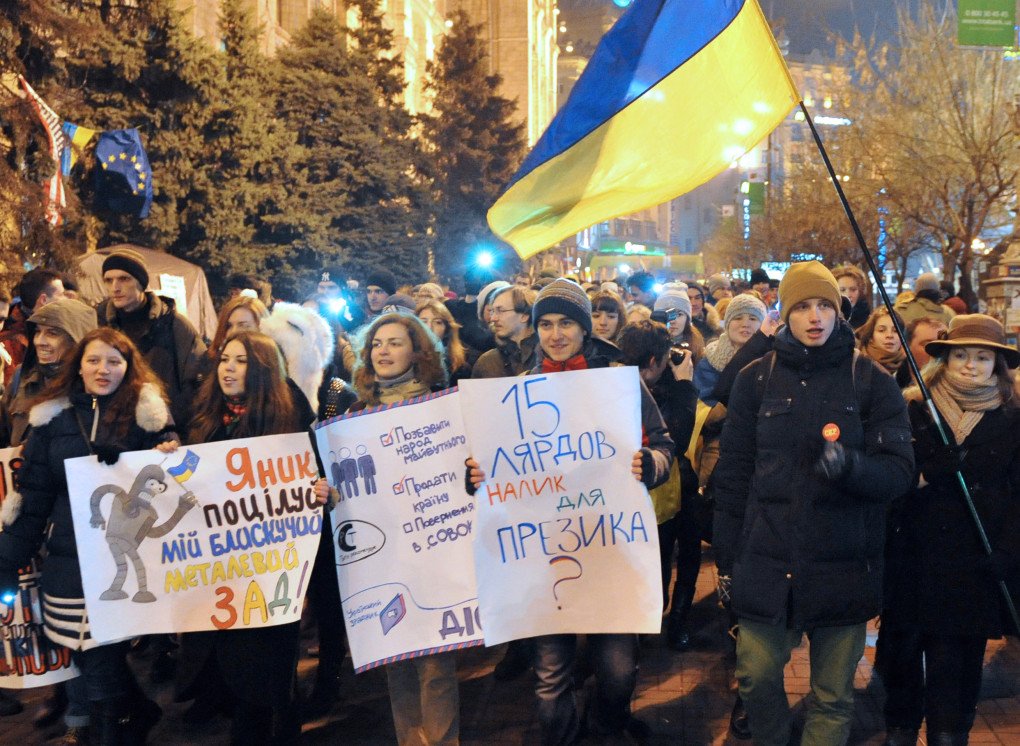
Global alliances
Ukraine’s commitment to sovereignty drives its pursuit of European integration and NATO membership, aligning with nations that respect human rights, the rule of law, and international conventions like the Geneva Conventions. Ukraine organized a Peace Summit to drive high-level discussions on achieving a comprehensive, just, and lasting peace. Ukraine’s 10-point Peace Formula addresses global challenges, including food security. By delivering grain to Gaza and other nations in need, Ukraine upholds these values on the world stage, dedicated to global stability.
Support from international partners—especially the EU and the United States—has been essential. These allies recognize Ukraine’s importance as a stronghold of civilized values. Economic investments and arms deliveries, like American Patriots, Danish and Dutch F-16s, and German Leopards, have strengthened Ukraine’s defense, enabling its soldiers to protect their country more effectively.
Bilateral security agreements and strategic partnerships have become a necessary step in Ukraine's efforts to safeguard its independence and integrate with the broader community of sovereign, democratic nations. Through its global diplomatic missions, Ukraine fosters cooperation and builds a strong network of support for its geopolitical goals.

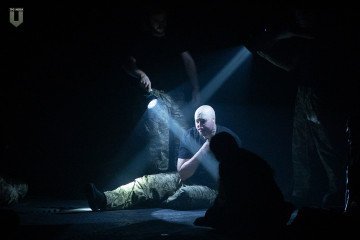
-554f0711f15a880af68b2550a739eee4.jpg)
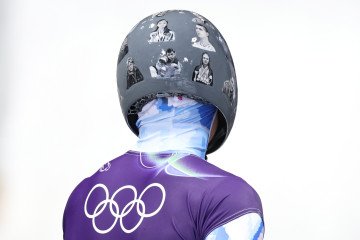

-6ead6a9dd508115a5d69759e48e3cad1.jpg)
-29a1a43aba23f9bb779a1ac8b98d2121.jpeg)
-7f50738271c122a9b5e663cb80703dd6.jpg)
